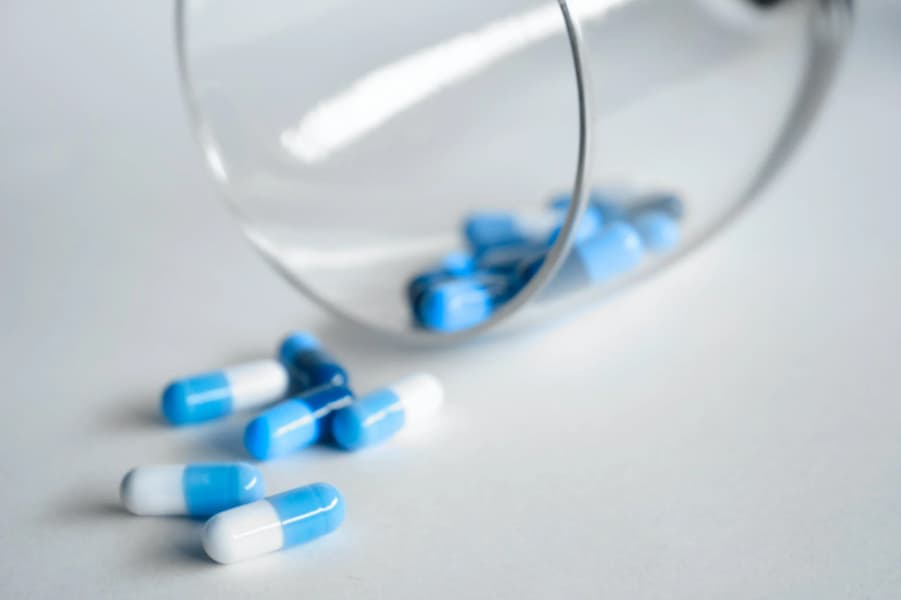Table of contents:
Opium has a long history of being used for pain treatment. Around 3500 B.C., people began to use opium. It's been seen as a universal cure-all throughout history. Morphine was extracted from opium in 1803, making it one of the earliest opium-based medicines. It immediately gained popularity and was extensively used for pain alleviation.
However, one of its harmful effects quickly became apparent: dependency. This adverse effect became more well-known during the American Civil War when many troops acquired morphine addiction. And this drug, like other opioids, has a lot of negative side effects. They must be understood and controlled so that patients can get the maximum advantages while avoiding unnecessary risks.

Side Effects from Morphine Use
Both immediate-release and long-acting oral morphine are available. Long-acting pain relievers are commonly prescribed by doctors for persistent pain.
Short-term side effects include the following:
Signs of Morphine Use
Addicts may "lose" their prescription or attempt to doctor shop. Doctor shopping is when a patient visits numerous doctors in a relatively short period to persuade each of them to prescribe morphine or another opioid medicine. Other warning indicators that friends and relatives should be aware of are:
Addicts, for example, will become consumed with acquiring their next dose to the detriment of everything else in their lives. As a result of their morphine addiction, they will miss jobs and school and face financial and legal difficulties. It's also critical that loved ones know the warning indications of morphine overdose. Morphine inhibits a person's capacity to experience pain or sorrow, so they may tell loved ones that they are "fine" and that nothing is wrong.
Consequences of Using Morphine
Morphine usage has several dangerous long-term consequences. While some, such as fever and hives, are just unpleasant, others are quite harmful and can cause permanent damage.
Many persons who take morphine, for example, are more susceptible to blood-borne infections like HIV. This is because many people who use morphine illegally inject it into their veins, often with sharing needles. Another danger of morphine addiction is death from an overdose. Since 2000, the Centers for Disease Control and Prevention has witnessed a 200% rise in opioid-related overdoses (including morphine overdoses).
Morphine Treatment Options
Medical help can reduce the unpleasant withdrawal symptoms and improve one's chances of finishing detox successfully. There are multiple ways to achieve this.
Medication-Assisted Treatment for Morphine Addiction
The use of drugs in conjunction with counseling and behavioral treatments to give a "whole-patient" approach to treating substance use disorders is known as medication-assisted therapy (MAT). Short-acting opioids like morphine are treated with methadone, naltrexone, and buprenorphine. These MAT drugs can be used for months, years, or even a lifetime with no side effects.
Behavioral Therapy Treatment for Morphine Addiction
This type of treatment helps addicts get involved in drug abuse treatment, provides incentives to stay abstinent, and change their behaviors and attitudes about drug abuse. It also helps to improve life skills for dealing with environmental cues and stressful situations that can trigger intense cravings for drugs and start a new cycle of compulsive abuse.
Inpatient Treatment Vs. Outpatient Treatment for Morphine Addiction
Withdrawing from morphine without medical assistance can be dangerous, and this is why different methods of treatment are available.
Inpatient Morphine Treatment
For those in early recovery from addiction, inpatient and residential treatment programs provide crucial support and structure. Unlike detox, which focuses solely on the physical symptoms of withdrawal, inpatient programs have the tools to treat holistically. It includes motivational interviewing, cognitive behavioral therapy, aftercare support, relapse prevention, medication-assisted treatment, and group therapy.
Outpatient Morphine Treatment
These programs offer a less intense treatment option for recovering from addiction. After finishing an inpatient or residential treatment program, this is a frequent step-down option for patients. This type of treatment focuses on continuing behavioral therapy and adhering to MAT-prescribed drugs.
Stages of Morphine Addiction Treatment in Vip Vorobjev Clinic
We've observed that a multipronged approach to morphine addiction is the most effective. Humane detox, medication management, and therapeutic techniques are all incorporated into our treatment regimens tailored to your specific requirements.
Diagnosis of Morphine Addiction
Our experts will diagnose morphine addiction through interviews and medical examinations. The process is conducted as carefully as possible, and the main focus is on the patient—he or she needs to feel safe.
Detox from Morphine
If it’s found that you require medical detox for your morphine addiction when you come to us, we will provide detox under the supervision of our highly qualified medical experts. We'll carefully remove the morphine and other drugs from your system until you're medically stable.
Effectiveness of Treatment for Morphine Addiction
An inpatient program is now the most effective therapy method for morphine addiction. They provide a recovering addict with a safe space to concentrate on his or her therapy without being distracted by the social and professional responsibilities of the outside world.
Overcoming morphine addiction is a lifelong journey. Even though detox may only take a few weeks, the commitment to being sober lasts decades. To continue on a morphine-free road, many recovering addicts have found great aid and accountability through continuous support groups and individual therapy. To avoid relapse, staying sober necessitates lifestyle modifications, including removing harmful influences from social connections. It's critical to form bonds with people who value a healthy lifestyle.
Сost of Morphine Addiction Treatment
Pricing depends on the type of treatment one chooses. Inpatient programs are obviously more expensive since they include accommodation and 24/7 support.
Doctors
Our doctors are expert professionals with years of experience in treating such addiction. We value their efforts, and we hope that you will trust their expertise.
Patents and Certificates
Medicine is all about proof, and we have the credentials to back our statements. We continuously search for and analyze new techniques and approaches in Morphine addiction treatment. We do our best to get certification for anything new in treatment methodology.
Reviews
There are tons of reviews online. People who have "graduated" from our programs shared their success stories. For some, treatment has been life-changing, and for others, it meant avoiding a deep fall into worse lifestyle changes and health problems.

